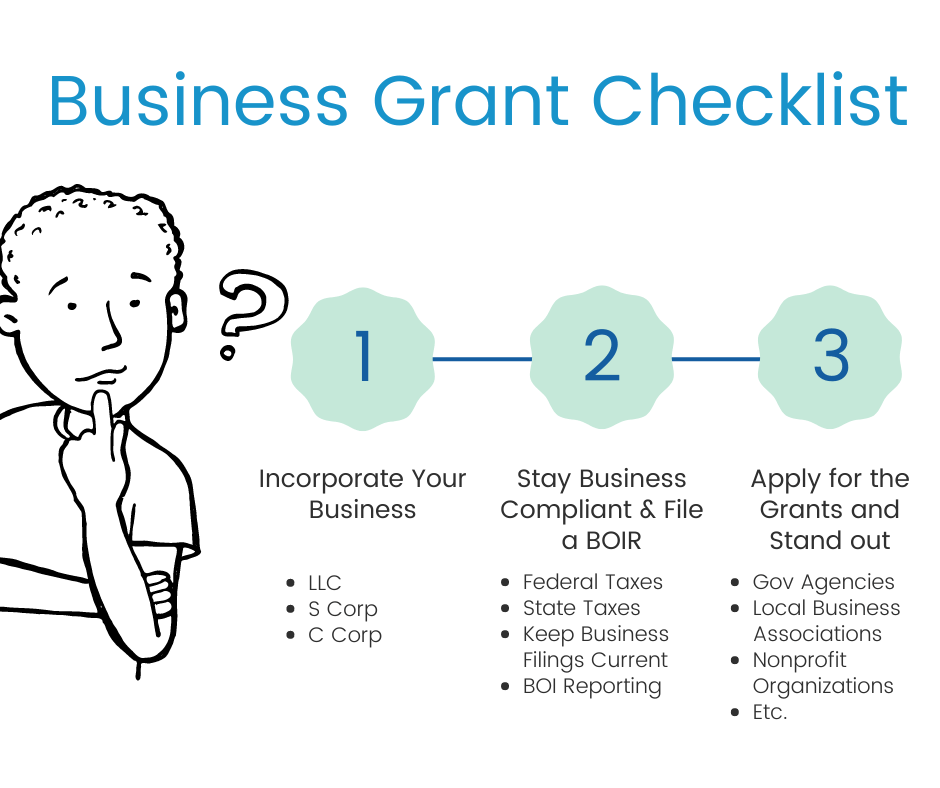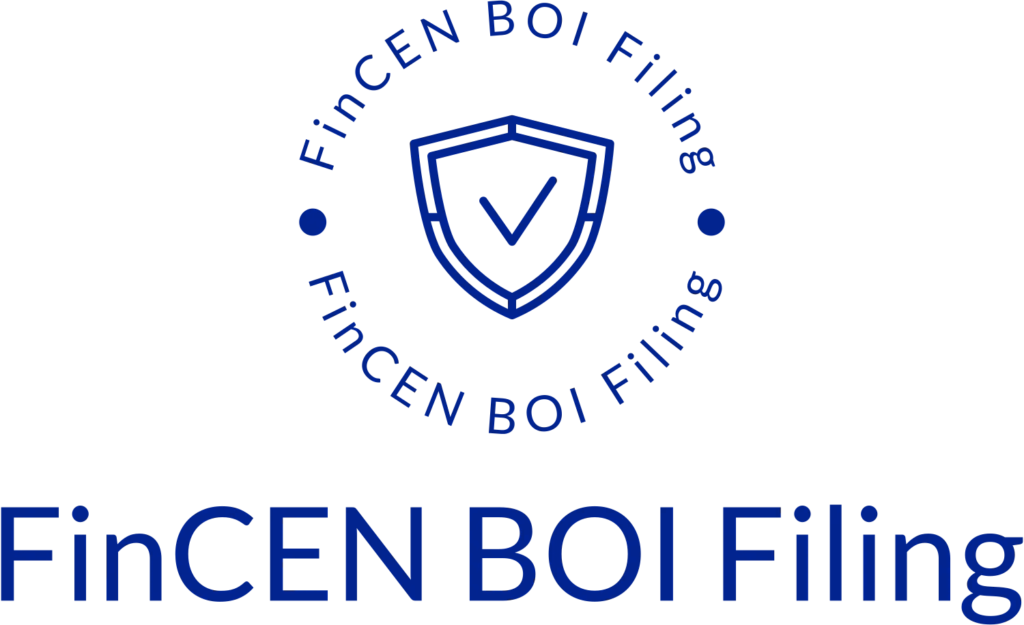Hey there, Sunshine State entrepreneurs! If you’re dreaming of turning your small business idea into reality but feeling the financial pinch, you’re in luck – Florida’s got your back with some sweet grant opportunities.
Picture this: You’re sipping a Cuban coffee in Miami, cheering on the Bucs in Tampa, or admiring the Kennedy Space Center on the Space Coast, all while running your thriving small business. Sounds pretty great, right? Well, with the right grant, that dream could be closer than you think. In this article, we’ll dive into where to find these golden tickets and what hoops you’ll need to jump through to qualify – because let’s face it, even in the Sunshine State, money doesn’t grow on orange trees.
Where to Search for Small Business Grants in Florida
Florida’s entrepreneurial landscape is ripe with possibility, brimming with untapped potential just waiting to be discovered. Savvy business minds need only to dig a little deeper, look beyond the obvious, and tap into the wealth of grants and resources available to turn their Sunshine State dreams into reality.
Some Florida Local Resources Include:
Florida’s Small Business Association: The Sunshine State’s SBA is a treasure trove of resources for aspiring entrepreneurs with big dreams and empty pockets. From mentorship programs to workshops on crafting killer business plans, they’re like your entrepreneurial fairy godparent, sprinkling magic dust on your funding quest.
The SBA in Florida offers the State Trade Expansion Program (STEP) grant, a golden ticket for small businesses looking to dip their toes into international waters. If you’re a Florida-based small business owner with stars in your eyes and global ambitions, this grant could be your passport to export success. Just remember, like Cinderella’s coach, there are eligibility requirements – so polish up that glass slipper and see if it fits!
Florida’s Economic Development Agency: Florida’s Economic Development Agency is a treasure trove for ambitious entrepreneurs seeking financial support. Their website is brimming with valuable resources, from detailed guides on securing funding to comprehensive lists of available grants and incentives. It’s like having a savvy business mentor right at your fingertips, ready to help you navigate the sometimes murky waters of startup financing.
The agency offers the Florida Small Business Emergency Bridge Loan Program, a short-term loan designed to help small businesses weather unexpected financial storms. This lifeline is available to Florida-based small businesses with 2 to 100 employees, providing interest-free loans of up to $50,000 for businesses impacted by disasters or other unforeseen circumstances. It’s like a financial umbrella, protecting your business dreams from washing away when the economic forecast turns gloomy.
Florida’s Chamber of Commerce: The Florida Chamber of Commerce is a goldmine for entrepreneurs seeking funding opportunities. They offer a comprehensive database of financial resources, including loans, grants, and investment programs tailored to Florida-based businesses. Their expert advisors can guide you through the application process and help you find the perfect funding match for your venture.
The Florida Chamber of Commerce offers the Small Business Grant Program, designed to support local entrepreneurs and stimulate economic growth. This grant is available to Florida-based businesses with fewer than 50 employees and annual revenues under $5 million. Applicants must demonstrate a clear plan for using the funds to expand their operations, create jobs, or innovate within their industry.
Spotlight on a Must-Know Small Business Grant
The Rural Community Development Revolving Loan Fund, offered by the Florida Department of Economic Opportunity, is a game-changing opportunity for rural communities in the Sunshine State. This program aims to boost economic development in areas that often struggle to attract investment and create jobs. By providing low-interest loans to eligible businesses and organizations, the fund helps stimulate growth, create employment opportunities, and improve the overall quality of life in rural Florida. If you’re a business owner or community leader in a rural area looking to make a significant impact, click here to learn more about this incredible opportunity.
To qualify for this loan program, applicants must meet specific criteria set by the Florida Department of Economic Opportunity. Typically, eligible entities include local governments, community-based organizations, and private businesses located in designated rural areas of Florida. The funds can be used for various purposes, such as infrastructure improvements, business expansion, and job creation initiatives. It’s important to note that applicants must demonstrate a clear plan for how the loan will contribute to the economic development of their rural community. Additionally, the ability to repay the loan and create a positive economic impact are crucial factors in the selection process.
Expand Your Search: Helpful Resources for Business Funding
When looking for small business grants, it may benefit you to look beyond the boundaries of Florida. Skip is your one-stop platform for discovering and securing the funding you need to start or grow your business. With thousands of grants ranging from $1,000 to $25,000, finding the perfect opportunity is just a click away.
Imagine having access to a user-friendly dashboard where you can track and apply for grants tailored to your business in Florida. Skip’s AI-assisted grant writing tool helps craft compelling applications that stand out, and with instant feedback, you can ensure your submission is top-notch every time.
Join the thriving community of entrepreneurs who have already reaped the benefits of Skip. With over $300,000 in grants donated and strong partnerships with government agencies and non-profits, Skip is dedicated to your success. Take the first step today and turn your business dreams into reality – Click Here to get started with Skip.
Prepping Your Business for Grant Opportunities
As an entrepreneur in Florida, it’s crucial to understand that incorporation is often a prerequisite for qualifying for small business grants, both at local and national levels. Many organizations offering grants require businesses to be formally incorporated before considering their applications. This requirement ensures that the business is a legitimate entity and demonstrates a level of commitment and professionalism. Incorporating your business not only opens doors to potential grant opportunities but also provides legal protection and credibility in the eyes of potential investors and partners.
When it comes to incorporating your business, we have found that Northwest Registered Agent stands out as the best option for entrepreneurs. Their expertise in handling the incorporation process, combined with their exceptional customer service, makes them an ideal choice for business owners looking to navigate the complexities of incorporation. Northwest Registered Agent offers personalized support throughout the process, ensuring that all necessary paperwork is filed correctly and efficiently. Their attention to detail and commitment to privacy protection sets them apart from other incorporation services, making them a trusted partner for entrepreneurs seeking to establish their businesses on solid legal footing.

How Compliance Affects Your Eligibility for Business Grants
Compliance isn’t just a box to check; it’s your ticket to opportunity. For entrepreneurs in Florida, staying on top of federal taxes and business registration isn’t merely about avoiding trouble—it’s about opening doors to grants that could fuel your growth. And while Florida doesn’t have a state income tax, don’t let that lull you into complacency.
The Corporate Transparency Act has added a new layer to the compliance game, demanding businesses reveal their true puppet masters through a Beneficial Ownership Information Report. This isn’t just another bureaucratic hoop; it’s a financial tightrope where a misstep could cost you dearly. The stakes are high, but so are the rewards of playing by the rules in this new era of transparency.
That’s where we come in. Navigating the Beneficial Ownership Information Reporting (BOIR) requirements can be daunting, but our website simplifies the process. We offer a secure and straightforward filing experience with a direct connection to FinCEN, ensuring your information is handled with the highest level of security. Our platform makes compliance effortless so you can focus on growing your business.
Don’t let penalties slow your business down. Failing to comply with Beneficial Ownership Information Reporting (BOIR) requirements can result in severe consequences. If you fail to file, you could be subject to the following penalties:
- Fines of up to $500 per day for failure to file BOIR
- Cumulative fines reaching up to $10,000
- A person who willfully violates the BOI reporting requirements may be subject to criminal penalties of up to two years imprisonment.
Not sure if you have a BOIR filing requirement? Please take our quick BOI eligibility quiz to determine whether you need to file and ensure you comply with regulations.
Wrapping Up: Your Guide to Business Grants in Florida
In the end, success in business often comes down to resourcefulness and persistence. Florida entrepreneurs have a wealth of grant opportunities at their fingertips, but tapping into them requires effort and savvy. Remember, free money is rarely truly free – it comes with expectations and responsibilities. But for those willing to put in the work, these grants can be the fuel that ignites your entrepreneurial dreams. The key is to start local, think creatively, and never stop learning. Your next big break might be just an application away.
For all of you out there who haven’t yet tackled your BOIR, the time to act is now. Procrastination won’t get you anywhere, but taking just a few minutes to complete our straightforward form will. Don’t let this critical step in your compliance journey slip through the cracks—get it done and move forward with confidence.
Frequently Asked Questions
Have questions about the Beneficial Ownership Filing process? Check out FinCEN BOI Filing's frequently asked questions for the answer.
What is a BOI report?
A Beneficial Ownership Information (BOI) report is a filing required by FinCEN to disclose key details about individuals who own or control a company, ensuring compliance with anti-money laundering laws and enhancing corporate transparency. Filing a BOI takes 5-10 minutes and can be done here.
When does the CTA become effective?
The Corporate Transparency Act (CTA) reporting requirements take effect on January 1, 2024. Business entities established before this date have until January 1, 2025, to meet the reporting obligations.
Are there penalties for not filing a BOI report?
Yes, failing to file a BOI report can result in substantial penalties, including hefty fines and potential legal repercussions. Learn more about the BOI deadlines and non-filing BOI penalties.
How do I file a BOI report?
Filing a BOI takes about 5-10 minutes and can be done here. If you’re not sure if you are required to file, you can take the one minute BOI Eligibility Quiz.
Who is considered a beneficial owner?
A beneficial owner is any individual who either:
- Directly or indirectly exercises substantial control over the reporting company, or
- Directly or indirectly owns or controls 25% or more of the company’s ownership interests.
Substantial control includes the power to direct, influence, or determine significant decisions of the company. This may involve senior officers or individuals with authority to appoint or remove senior officers or a majority of the board.
Ownership interests encompass rights that establish ownership in the company, ranging from basic stock shares to more complex financial instruments.
For more details on “substantial control” and “ownership interests,” refer to our guide on complex ownership structures.
How do BOI reports get submitted to FinCEN?
We submit reports through a secure API connection directly with FinCEN’s Beneficial Ownership Secure System (BOSS). This integration allows for seamless and efficient filing of Beneficial Ownership Information reports, reducing the time it takes to complete and submit a report.
Our user-friendly form is designed to minimize errors by guiding you through the process with clear prompts and checks. Additionally, by using the secure API connection, we ensure that your data remains private and protected throughout the submission process, adhering to the highest security standards.
Who can access the beneficial ownership information?
The beneficial ownership information will be accessible only to authorized government agencies, such as law enforcement and regulatory authorities, for the purpose of combating money laundering, fraud, and other financial crimes.
This data is not publicly available and is used solely for compliance with legal and regulatory requirements. Only those with a legitimate need, as defined by the law, will be able to access this information to ensure transparency and uphold national security.
You can read more about keeping your personal information private when filing your BOIR.
Do I need to file a BOIR annually?
No, you do not need to file a Beneficial Ownership Information Report (BOIR) annually. However, you are required to update and file a new report if there are any changes to the beneficial ownership or company applicant information, such as changes in ownership or control. The report must be filed when there are material updates, but there is no annual filing requirement unless changes occur.
What information is required in a BOI report?
Type of Report
The reporting company must specify the type of report being submitted: an initial report, a correction of a prior report, or an update to a prior report.
Company Information
The reporting company must provide the following details:
- Legal Name: The official name of the company.
- Trade Name: Any “doing business as” (DBA) names used by the company.
- Address: The current street address of its principal place of business. If the principal place of business is outside the U.S., the company must report the address from which it conducts business in the U.S.
- Taxpayer Identification Number (TIN): This includes an EIN, SSN, or ITIN, as appropriate.
Beneficial Owner Information
The reporting company must provide the following details for each beneficial owner:
- Legal Name: The individual’s full legal name.
- Date of Birth: The individual’s date of birth.
- Address: The individual’s residential street address.
- Identification Document: A unique identifying number from an acceptable identification document, the issuing state or jurisdiction, and an image of the document.
Company Applicant Information (if required)
For reporting companies created on or after January 1, 2024, the following information about the company applicant must be provided:
- Address: The individual’s residential street address. If the applicant forms or registers companies as part of their business (e.g., paralegals), the business address can be used. The address does not need to be in the U.S.
- Identification Document: A unique identifying number from an acceptable identification document, the issuing state or jurisdiction, and an image of the document.
Who needs to file a BOI report?
Most businesses are required to file a BOI report, with exceptions for 23 specific categories, such as publicly traded companies and other regulated entities. To learn more about these exemptions and determine if your business needs to file, read this article.
When is the BOI report due?
- Companies formed or registered before January 1, 2024, must file an initial BOI report by January 1, 2025.
- Companies formed or registered in 2024 must file a BOI report within 90 days of receiving actual or public notice of their formation or registration.
- Companies formed or registered on or after January 1, 2025, must file their initial BOI report within 30 days of receiving actual or public notice.
You can learn more about the BOI deadlines here.
What is type of ID is required?
Acceptable identification documents include the following:
- A valid, unexpired driver’s license issued by a U.S. state or territory.
- A valid, unexpired ID card issued by a U.S. state, local government, or Indian Tribe for identification purposes.
- A valid, unexpired passport issued by the U.S. government.
- If none of the above is available, a valid, unexpired passport issued by a foreign government may be used instead.
An identification document must be collected for each beneficial owner.
For companies formed after 2023, an ID must also be provided for the company applicant.
Who is a company applicant?
A company applicant is the individual responsible for creating or registering a company. Specifically, it includes:
- The individual who directly files the document to form or register the entity with the relevant state or tribal authority, such as the Secretary of State.
- The individual primarily responsible for directing or controlling the filing process, even if they are not the one submitting it.
For companies formed or registered after January 1, 2024, this information must be reported as part of the Beneficial Ownership Information Report (BOIR).
Is it necessary to use a certified public accountant (CPA) or other professional to submit a BOI report?
Most individuals will be able to submit their Beneficial Ownership Information reports directly without needing assistance from attorneys or CPAs. Our streamlined, user-friendly form guides you through the process, making it simple to provide the required information accurately and efficiently.
Is a company required to update and correct information that is no longer accurate?
Yes, a company is required to update or correct its beneficial ownership information whenever it is no longer accurate. If there are any changes to the company’s beneficial owners or company applicant information, such as a change in ownership percentages or control, the company must file an updated report with the correct details. This ensures that the information on record remains accurate and compliant with the reporting requirements, helping to maintain transparency and reduce the risk of misuse.
Will I receive a confirmation of submission after submitting the BOIR?
After submitting your BOIR through our website, you will receive an email containing a unique submission process ID, confirming that your submission has been successfully received.
The email will also notify you once FinCEN has accepted your report. In rare instances, if your submission is rejected, we will inform you of the reason and provide a link to resubmit the corrected information.
You can track the status of all your submissions through our BOIR tracking page, ensuring you stay updated on the progress of your report. Most submission have a confirmed acceptance within a few minutes of submission.





